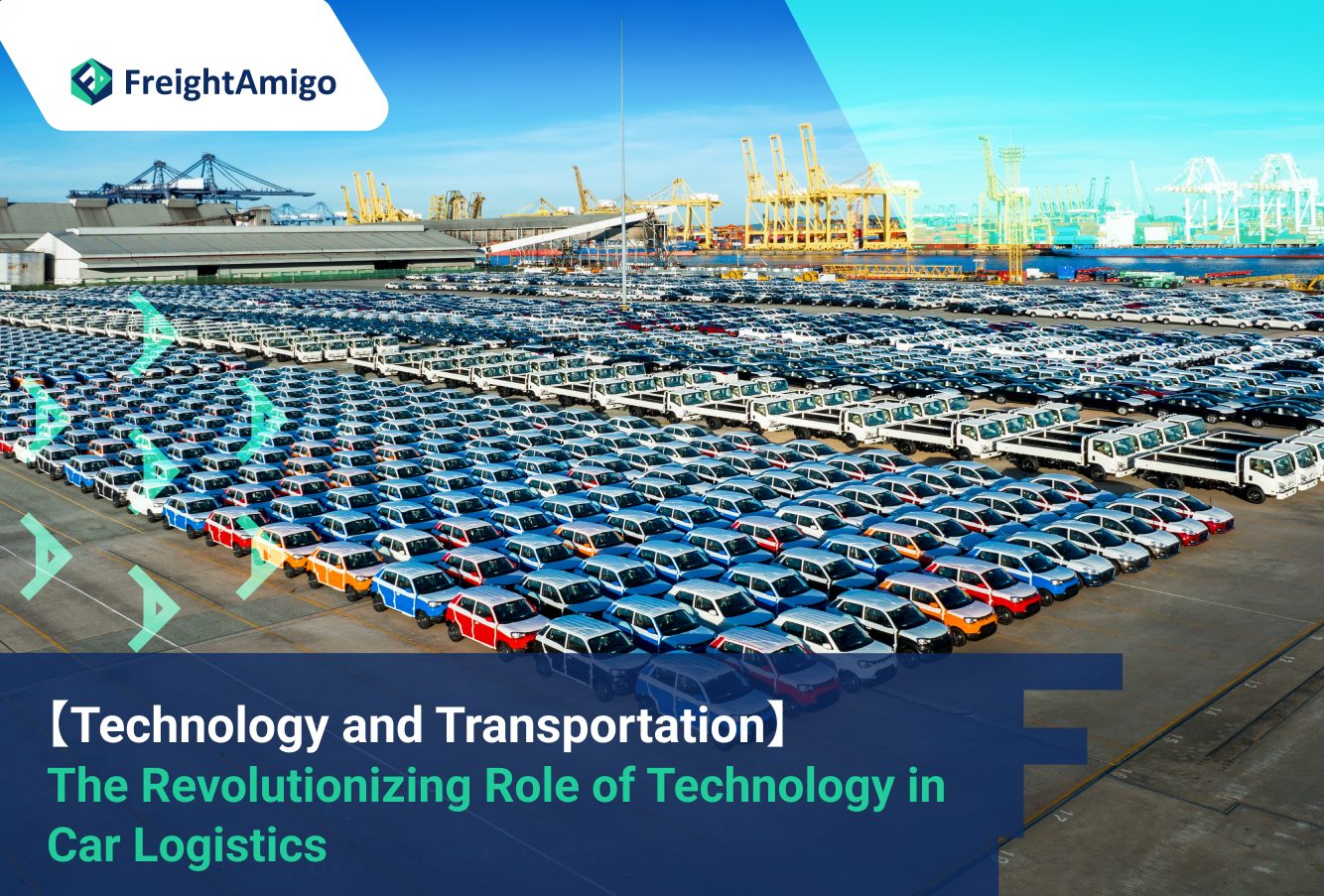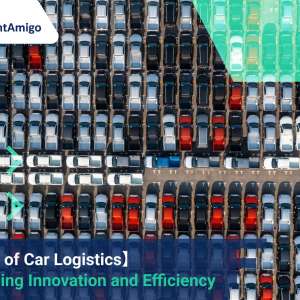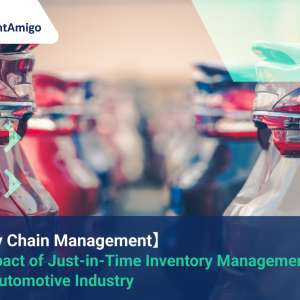The realm of car logistics has been revolutionized by advancements in technology, enhancing efficiency and transforming the way vehicles are transported. This article delves into the fascinating world of car logistics, exploring how innovations such as GPS tracking, automated systems, and data analytics have reshaped the industry.
Latest update on 22 February, 2024 by Caspian Ng– Marketing Analyst at FreightAmigo
Want to compare the best Express, Air Freight, Sea Freight, Rail Freight & Trucking rates so as to have better control on cost?
The Evolution of Car Logistics
Car logistics has come a long way from its traditional roots. The advent of technology has transformed the logistics industry, making it more efficient, reliable, and customer-centric. The transition from manual operations to automated processes has been a game-changer, enabling logistics companies to streamline operations, minimize errors, and improve overall productivity.
The Power of GPS Tracking in Car Logistics
GPS (Global Positioning System) tracking has been a significant boon to the car logistics industry. It has revolutionized fleet management by facilitating real-time vehicle tracking and route optimization. The integration of telematics systems provides in-depth insights into vehicle health and driver performance, significantly boosting efficiency and minimizing delays.
GPS technology has not only made it possible to track vehicles in real-time but also to change routes promptly based on traffic conditions. This quick adaptability helps avoid delays and improve fuel efficiency, making it an indispensable tool in modern car logistics.
The Rise of Automated Systems in Car Logistics
Automation has been another catalyst for change in the car logistics industry. Automated systems have reduced the need for labor, increased efficiency, and minimized errors. With the help of robotics, sensors, and advanced software, mundane tasks such as order picking, packing, data entry, and shipment tracking can be automated, leading to a significant increase in productivity.
Automated systems also play a crucial role in inventory management. Advanced inventory management systems maintain stock levels, predict demand patterns, and plan for restocking, mitigating the risks of running out of stock or overstocking, which can lead to substantial losses.
The Impact of Data Analytics in Car Logistics
Data analytics has emerged as a powerful tool in the car logistics industry. Sophisticated analytics tools can analyze vast amounts of data to uncover trends, make predictions, and provide insights. These capabilities aid in demand forecasting, optimizing routes for transportation, and identifying potential issues before they escalate into significant problems.
Furthermore, data analytics facilitates improved communication and collaboration between stakeholders in the supply chain, including suppliers, carriers, and customers. By leveraging data, logistics companies can make data-driven decisions, making logistics operations more responsive and efficient.
The Influence of IoT on Car Logistics
The Internet of Things (IoT) has made a notable impact on car logistics. IoT connects vehicles, cargo, and supply chain infrastructure, facilitating data-driven decision-making. Smart containers equipped with IoT sensors provide real-time data on temperature and humidity, greatly improving the management and safety of sensitive cargo.
IoT also enables the use of RFID tags in warehouses, transforming inventory management by allowing for faster and more accurate tracking of goods. This technology has revolutionized car logistics by providing real-time visibility into the location and status of shipments, enhancing customer service, and offering accurate delivery estimates.
The Emergence of Blockchain in Car Logistics
Blockchain is another technology that has found its place in car logistics. This technology enhances transparency and security in the supply chain, enabling more reliable and tamper-proof tracking of goods from origin to destination.
Blockchain allows for the creation of a decentralized and immutable ledger of transactions, ensuring the authenticity and traceability of goods. This technology not only improves the efficiency of logistics operations but also instills trust among stakeholders.
The Integration of E-Commerce in Car Logistics
The integration of e-commerce platforms with logistics operations has smoothed the connection between online retailers and supply chain operations. Digital solutions have simplified the management of orders, shipping arrangements, and handling returns.
Artificial intelligence is used for predictive analysis in stock management, anticipating customer demand to ensure product availability. This integration has helped in bridging the gap between online shopping and physical delivery, enhancing the overall customer experience.
The Advent of Autonomous Vehicles in Car Logistics
The advent of autonomous vehicles has brought about a new era in car logistics. Self-driving vehicles, equipped with sophisticated sensors and AI, offer the potential to automate the transportation of goods, increasing efficiency and reducing costs.
Autonomous vehicles can operate around the clock, eliminating the constraints of human drivers. They can also optimize routes using real-time traffic data, leading to faster deliveries and lower fuel consumption. While still in the early stages of development, autonomous vehicles hold significant promise for the future of car logistics.
The Role of Mobile Applications in Car Logistics
Mobile applications have democratized access to logistics services, enabling real-time tracking, easy booking, and improved communication between all parties involved. These apps allow businesses to manage freight operations, including real-time tracking of international shipments, delivery schedules, and customs clearance, all via a smartphone.
Challenges and Future Considerations
Despite the numerous advantages of technology in car logistics, there are also several challenges to consider. These include significant investment requirements for adopting new technologies, data security and privacy concerns, the need for new skill development, and compliance with regulations governing the use of technologies like drones and autonomous vehicles.
As the car logistics industry continues to evolve, addressing these challenges is crucial to fully leverage new developments and drive further innovation responsibly.
Conclusion
The impact of technology on car logistics is profound. Breakthroughs in GPS tracking, automation, data analytics, and other technologies have ushered in a new era of efficiency and customer satisfaction in the car logistics industry. As technology continues to advance, it is poised to further transform car logistics, making it more efficient, transparent, and customer-focused.
The future of car logistics is exciting, with the potential for even greater advancements in technology, such as AI-powered autonomous vehicles, blockchain-based supply chains, and IoT-enabled smart logistics. As we look ahead, the ability to adapt and embrace these transformative technologies will be crucial for businesses in the car logistics industry.
Adopting these advancements not only provides businesses with a competitive edge but also contributes to creating a more sustainable and efficient global supply chain. The future of car logistics is here, and it is driven by technology.
There are different options for cargo transportation. If you want to choose the most convenient and suitable solution, it is best to have the full support of logistics experts! If you are planning to ship your vehicle, please go to the FreightAmigo page for inquiries.
Read More:
Simplify Your Car Logistics: A Step-by-Step Guide to Shipping Your Vehicle
【Shipping Car to UK】Car shipping Guidelines to the United Kingdom
【Smooth and Secure】 Shipping Methods for Car Batteries
【Unlocking the Secrets of Car Logistics】 A Comprehensive Overview of Car Shipping
If you have any inquiries on logistics/supply chain, feel free to contact FreightAmigo now:
Chat with us online | Hotline: +852 28121686 | WhatsApp: +852 27467829



